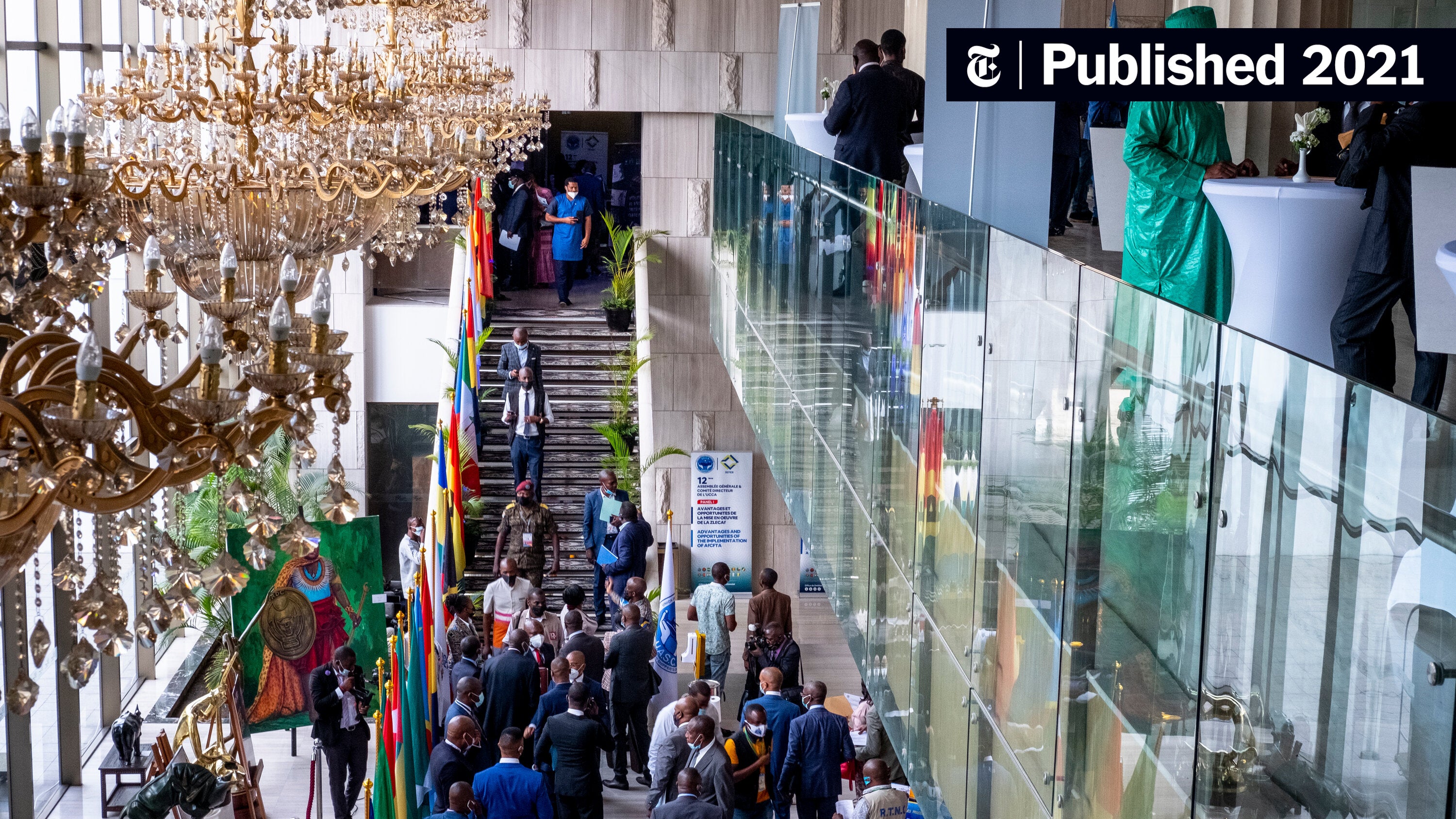Congo's Cobalt Export Ban And The Path Forward

Table of Contents
The Economic Ramifications of a Cobalt Export Ban from Congo
A cobalt export ban from the DRC would have profound and far-reaching economic consequences, disrupting global supply chains and impacting the economies of both the DRC and its trading partners.
Impact on Global Cobalt Supply Chains
The world is heavily reliant on Congolese cobalt. A ban would severely restrict the global supply, leading to several negative consequences:
- Price hikes: The reduced availability of cobalt would inevitably drive up prices, increasing the cost of manufacturing EVs, smartphones, and other technologies that utilize cobalt in their batteries and components.
- Shortages: Manufacturers would face significant cobalt shortages, potentially halting production lines and delaying the rollout of new products. This could significantly impact the growth of the EV industry, a sector crucial for mitigating climate change.
- Supply chain vulnerabilities: The current reliance on the DRC highlights a critical vulnerability in global supply chains. Diversifying sourcing becomes even more critical, yet challenging, given the DRC's dominant position.
- Alternative sourcing challenges: Finding reliable alternative sources of cobalt is difficult. Existing mines in other countries often lack the scale or the ethical standards of the best Congolese operations.
According to the International Energy Agency (IEA), the DRC accounts for over 70% of global cobalt production. This dependence makes the country's cobalt production a critical factor in the global economy.
Economic Consequences for the DRC
While a ban might seem to benefit the DRC by encouraging domestic processing and value addition, the long-term economic consequences could be detrimental:
- Impact on GDP: A ban could severely hamper the DRC's GDP, as cobalt exports represent a significant portion of its economy. Short-term gains from domestic processing may not offset the substantial losses from reduced export revenues.
- Employment: The cobalt mining sector employs a significant number of people in the DRC. A ban, without proper planning for alternative employment, could lead to widespread job losses.
- Government revenue: The DRC government relies heavily on cobalt export revenues to fund public services and development projects. A ban would drastically reduce this revenue stream.
- Poverty reduction efforts: The cobalt mining industry, while imperfect, does contribute to poverty reduction efforts in the DRC. Disrupting this industry without adequate social safety nets could exacerbate poverty and inequality.
Responsible mining practices and fair trade are paramount for the sustainable development of the DRC and the global cobalt industry.
Geopolitical Implications of Congo's Potential Cobalt Export Ban
A cobalt export ban would not only have economic ramifications but also significant geopolitical implications, potentially reshaping global power dynamics.
Shifting Global Power Dynamics
Control over cobalt resources is becoming increasingly strategic, especially as the demand for cobalt-based batteries soars. A ban would intensify the competition among countries seeking to secure cobalt supplies:
- Increased competition: Countries would scramble to secure alternative sources, potentially leading to increased competition for existing cobalt resources and possibly disputes over access to mines.
- Potential for trade disputes: The disruption to global supply chains could trigger trade disputes between countries reliant on Congolese cobalt and the DRC itself.
- Impact on international relations: The ban would test international relations, necessitating diplomatic efforts to manage the resulting tensions and ensure a stable supply of cobalt.
International Relations and Diplomacy
International organizations and diplomatic efforts are crucial in navigating the complexities of Congolese cobalt:
- Involvement of international bodies: The UN, EU, and other international bodies could play a vital role in mediating disputes, promoting responsible mining practices, and fostering dialogue between the DRC and its trading partners.
- Diplomatic negotiations: Negotiations between the DRC and its trading partners are crucial to find a mutually beneficial solution, balancing the DRC's need for economic development with the global demand for cobalt.
- Importance of international cooperation: International cooperation is essential to establish transparent and sustainable cobalt supply chains, ensuring responsible sourcing and preventing conflict minerals from entering the market.
Potential Solutions and the Path Forward for Responsible Cobalt Mining in Congo
Addressing the challenges surrounding Congolese cobalt requires a multifaceted approach focusing on sustainable mining practices, investment in local processing, and enhanced transparency.
Sustainable Mining Practices and Environmental Protection
Prioritizing environmental protection and worker safety is non-negotiable:
- Stricter environmental regulations: The DRC needs to enforce stricter environmental regulations to minimize the negative impact of cobalt mining on the environment.
- Responsible sourcing initiatives: Promoting initiatives like the OECD Due Diligence Guidance for Responsible Supply Chains of Minerals from Conflict-Affected and High-Risk Areas is critical.
- Improved worker conditions: Addressing issues like child labor and unsafe working conditions is crucial for ethical and sustainable cobalt mining.
Investment in Local Processing and Value Addition
Investing in domestic processing and value addition within the DRC is key to maximizing economic benefits:
- Attracting foreign investment: The DRC needs to create a favorable investment climate to attract foreign investment in local cobalt processing facilities.
- Developing local expertise: Investing in training and education programs to build local expertise in cobalt processing and refining is crucial.
- Building infrastructure: Developing the necessary infrastructure, including transportation and energy networks, is essential for supporting local processing.
- Promoting technology transfer: Facilitating technology transfer from developed countries can help the DRC adopt advanced and efficient cobalt processing techniques.
Promoting Transparency and Traceability in the Cobalt Supply Chain
Transparency and traceability are vital for ensuring responsible sourcing and preventing conflict minerals:
- Blockchain technology: Utilizing blockchain technology can enhance traceability and transparency throughout the supply chain, making it more difficult to source cobalt from unethical or conflict-ridden areas.
- Improved traceability systems: Strengthening existing traceability systems and developing new ones can help track cobalt from mine to market, ensuring accountability and ethical sourcing.
- Strengthening regulatory frameworks: Robust regulatory frameworks are necessary to monitor and control cobalt production, processing, and trade, preventing illegal activities.
Conclusion
Congo's cobalt export ban, or even the mere threat of one, underscores the urgent need for a comprehensive and collaborative approach to managing this crucial resource. The economic and geopolitical implications are significant, highlighting the interconnectedness of global supply chains and the importance of responsible mining practices. The path forward involves a commitment to sustainable mining, investment in local processing, and the strengthening of transparency and traceability mechanisms. Understanding Congo's cobalt export ban is crucial for navigating the complex challenges and opportunities that lie ahead. Let's work together to find a sustainable path forward for Congo's cobalt industry, ensuring its benefits are shared equitably and its environmental impact is minimized. To learn more about responsible sourcing initiatives and support ethical cobalt mining, visit [insert links to relevant organizations and reports here].

Featured Posts
-
 21 Nouveaux Jeux Rejoignent Le Catalogue Ge Force Now
May 16, 2025
21 Nouveaux Jeux Rejoignent Le Catalogue Ge Force Now
May 16, 2025 -
 The Mystery Of Dasanis Uk Market Absence
May 16, 2025
The Mystery Of Dasanis Uk Market Absence
May 16, 2025 -
 Death Following Argument At West Broad Street Foot Locker Crime Insider Investigation
May 16, 2025
Death Following Argument At West Broad Street Foot Locker Crime Insider Investigation
May 16, 2025 -
 Unbelievable Upset Paddy Pimbletts 35 Second Loss
May 16, 2025
Unbelievable Upset Paddy Pimbletts 35 Second Loss
May 16, 2025 -
 Catch All The Action Your Complete Guide To Watching The Nhl Playoffs
May 16, 2025
Catch All The Action Your Complete Guide To Watching The Nhl Playoffs
May 16, 2025
